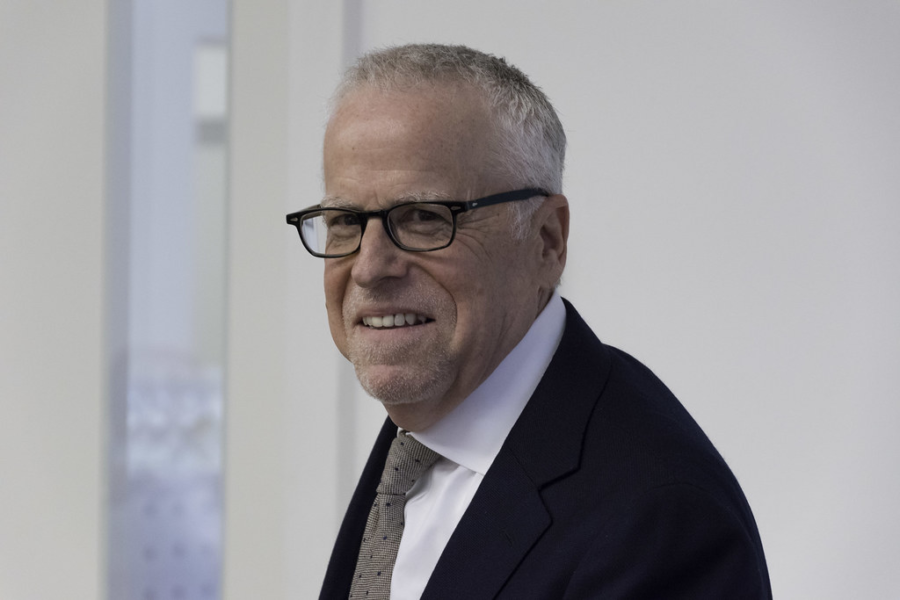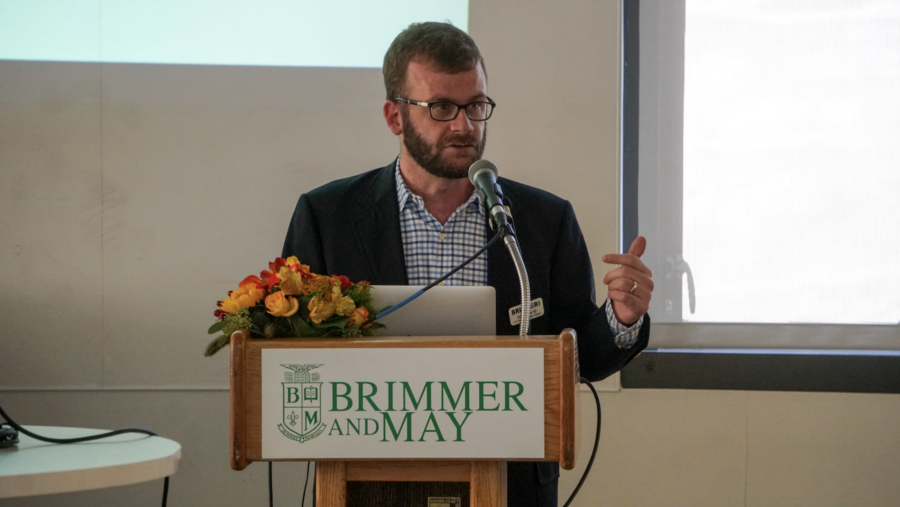Tom Rosenstiel is one our nation’s most respected authors, journalists, and media critics.
In 1997, he founded the Project for Excellence in Journalism, while also co-founding the Committee of Concerned Journalists. In January 2013, he became president of the American Press Institute, which “conducts research, training, convenes thought leaders and creates tools to help chart a path ahead for journalism in the 21st century.”
I’m also an avid reader his column on Poynter.org, “The Next Journalism,” in which he discusses anything and everything to do with media’s constantly changing landscape. More still, Rosenstiel is coauthor of The Elements of Journalism: What Newspeople Should Know and the Public Should Expect, widely regarded as essential reading for high-school and college journalism students. It’s also a coveted go-to resource for professional newsrooms around the country.
After finishing Rosenstiel’s most recent book, The New Ethics of Journalism for the 21st Century, I reached out via email to ask him a few burning questions. Here is an edited copy of our exchange…
Q: In today’s changing media landscape, please explain three of the most important skills that high school journalism teachers should help students master?
A: I’d say first students should know how to distinguish information that is well sourced and vetted from information that is less reliable. Being a smart consumer is the first step to being a good producer. And these students will be lifetime media consumers.
The next skill is to be able to write, to distill ideas clearly so that you communicate, regardless of what medium you are working in, including data visualization.
Third, you should develop your curiosity. Journalism in the end is the skill of having a keen curiosity about what other people want to know and being able to anticipate and answer those questions.
Q: With low pay and full-time employment difficult to obtain at many news outlets, what advice would you offer high school students considering a career in print, online, or broadcast journalism?
A: Journalism will happen in the future, even if the economic model is unclear. For most of us, journalism is a mission, one that is about connecting people to each other. No one good ever did it largely for money.
Q: In The New Ethics of Journalism, you and Kelly McBride write, “The digital age has transformed how journalism is created and delivered.” How and to what extent should this new reality change how high school teachers go about teaching journalism?
A: Anyone can publish anytime. The barriers to entry are down. That makes producing journalism very exciting for young people. They will invent the next journalism, and that usually starts in high school. It certainly did for me.
Q: With today’s emphasis on online journalism, do you see any reason for high school teachers to continue teaching print layout and design? Should high school yearbooks and literary magazines also continue to exist, at least in their current print form?
A: I would start with teaching tablet design. That will become our primary platform for long form reading and consumption, and I suspect our print products, whatever form they take, will begin to resemble our tablet design.
Q: If you had no restrictions, how would you go about designing and implementing your ideal high school journalism program? What would be your ultimate goal?
A: It would start, as it always should, with the interests of their students and their desire to communicate with each other. Channel that. Have them cover what interests them, what is going on in their lives, and the school. And have it be communicated the way those students communicate, online, on phones, in social media, in video, and in print.







